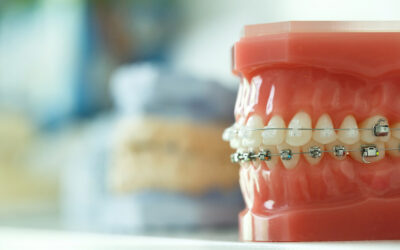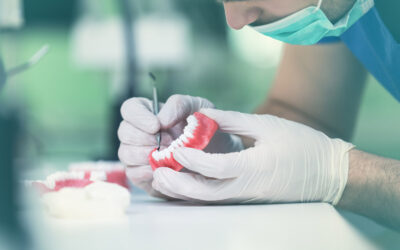How to Whiten Teeth with Baking Soda
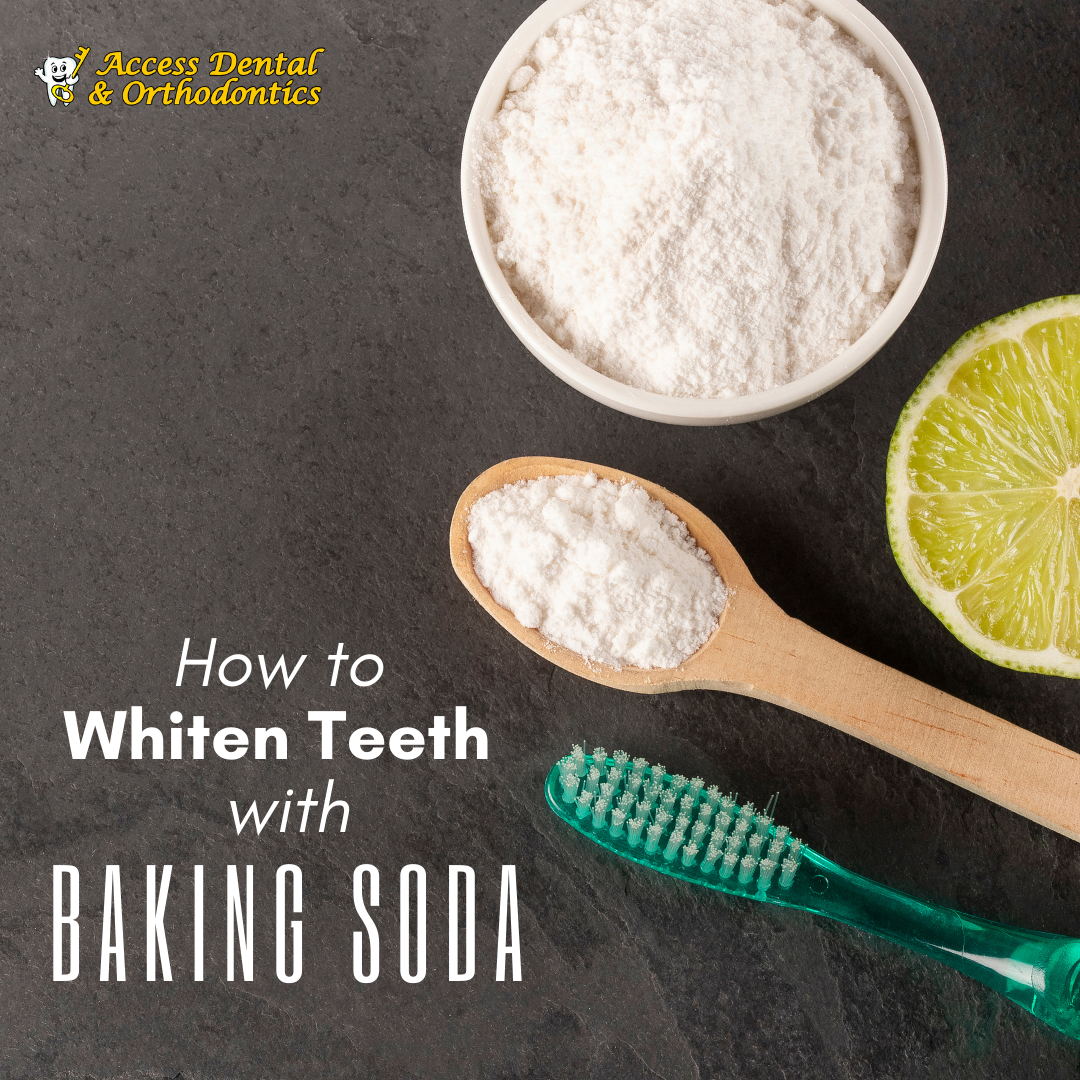
If baking soda has all these benefits, why isn’t everyone using it as a teeth whitener? It doesn’t take much baking soda but too much can wear away enamel and make your teeth look even worse. To whiten teeth, baking soda must be used carefully to avoid damage while still giving you a brighter smile.
How can baking soda whiten your teeth?
 Baking soda can lighten stains on teeth by acting as a polishing agent, lifting off the thin uppermost layer of enamel to restore its natural brightness. When baking soda is combined with other components found in toothpaste such as fluoride or surfactants, it acts together for enhanced cleaning action that helps remove surface stains more effectively.
Baking soda can lighten stains on teeth by acting as a polishing agent, lifting off the thin uppermost layer of enamel to restore its natural brightness. When baking soda is combined with other components found in toothpaste such as fluoride or surfactants, it acts together for enhanced cleaning action that helps remove surface stains more effectively.
Although baking soda has been shown to whiten teeth by removing everyday stains from drinking coffee, wine, or smoking, it will not be as effective against deeper stains caused by years of buildup. Using baking soda is not recommended to help prevent cavities, gum disease, or any other dental problems. The use of baking soda in combination with toothpaste should be a complement to your dental routine and not a replacement for daily brushing or regular dentist visits.
What are the benefits of using baking soda to whiten teeth?
Baking soda is a natural ingredient that can be used to whiten your teeth. It has antiseptic properties which not only help reduce the bacteria in the mouth, but it helps fight against tooth decay and other diseases. While baking soda can’t reverse past damage to teeth, it can still make them look whiter by removing stains on the surface.
Using baking soda to whiten teeth has many advantages. It is safe and effective, yet inexpensive and easy to find. It can easily be added to your daily oral care routine just like brushing your teeth. If you are looking for a natural alternative to the harsh whitening chemicals and strips sold in stores, then using baking soda can be an excellent choice for you.
How long will it last after whitening teeth with baking soda?
It can take 2 to 6 weeks for you to see a significant difference in how white your teeth are, and the effect can last for up to 48 hours. Baking soda is also helpful in removing stains caused by excessive consumption of red wine and coffee. The baking soda used in baking and cooking can be a great addition to your regular toothpaste if it is not an ingredient in your toothpaste already. After brushing with baking soda, make sure you rinse thoroughly because its abrasive nature could wear away enamel if left on the teeth for too long after brushing.
Daily usage of baking soda for teeth whitening is not recommended; however, it has many other dental benefits. If you are looking for a natural remedy to help address your oral health issues, baking soda may be the answer. Most importantly, always consult with your dentist before starting any teeth whitening regimen to avoid damaging your enamel or gums.
The Best Ways to Whiten Teeth with baking soda
To use baking soda as a teeth whitener, you can mix with water to form a paste. Alternatively, you can buy toothpaste that already contains baking soda and other ingredients such as fluoride and surfactants. Once the baking soda is mixed with water or toothpaste, brush your teeth gently for about two minutes twice daily – once before going to bed and again in the morning – ideally after breakfast.
To brush your teeth with baking soda and hydrogen peroxide, mix baking soda and 3% hydrogen peroxide into a paste. Using a toothbrush, apply the paste to your teeth and brush gently in small circular motions. Brush for up to two minutes and be careful not to get any of the paste on your gums or leave it in your mouth for too long as it can cause irritation and tooth sensitivity.
People have also used baking soda and lemon juice to whiten teeth. Mix baking powder and lemon juice into a paste, then brush gently twice a day. Rinse off with water afterwards, avoid swallowing excess paste and follow the same rules as using baking soda with hydrogen peroxide.
These methods will yield similar results given that baking soda is an effective teeth whitener on its own without the need for added ingredients such as hydrogen peroxide or lemon juice. However, it is important to note that excessive use of baking soda to whiten teeth may lead to increased risk of enamel erosion and tooth sensitivity.
How To Whiten Teeth with baking soda and toothpaste
To use baking soda as a teeth whitener, you can brush your teeth gently using baking soda and water mixed into a paste before brushing it away to remove the residue. Alternatively, you can buy toothpaste containing baking soda and other ingredients such as fluoride and surfactants that will aid in removing stains from your teeth. After brushing with the mixture, make sure you rinse thoroughly because its abrasive nature could wear away enamel if left on the teeth for too long.
What are the risks of teeth whitening with baking soda?
Baking soda should only be used after discussing the use of this ingredient in your home dental routine with your dentist because they can help warn you about any potential risks you might not know about otherwise. In addition, baking soda should not be used as a substitute for regular professional dental cleaning and examination because it does not have other components found in toothpaste such as fluoride and surfactants which can help fight cavities or plaque buildup.
The use of baking soda for brushing your teeth has certain dangers associated. This can weaken the enamel, which can make the teeth more sensitive to hot or cold temperatures. It can increase the risk of tooth decay, as it is mildly abrasive and contains starch that feeds certain types of bacteria that cause cavities. You should consult your dentist before using baking soda for teeth whitening to ensure this method will not have any unintended consequences.
Alternatives to teeth whitening with baking soda
Teeth Whitening Toothpaste
Adding a teeth-whitening toothpaste to your daily routine can help remove surface stains you get from coffee or wine but brushing with whitening toothpaste alone will not change the natural color of your teeth or remove any deeper stains. Teeth whitening toothpaste use special abrasives like baking soda, calcium carbonate and silicates that gently polish the teeth to remove stains or peroxide and other chemicals that break down the outermost layer to expose a new, fresh layer of enamel.
Covarine is a blue chemical that can be found in some teeth whitening toothpastes. It adheres to the surface of the teeth, making them appear slightly bluish and less yellow. With a whitening toothpaste containing covarine, the effect can seem immediate, but it is not actually removing stains.
Teeth Whitening Strips
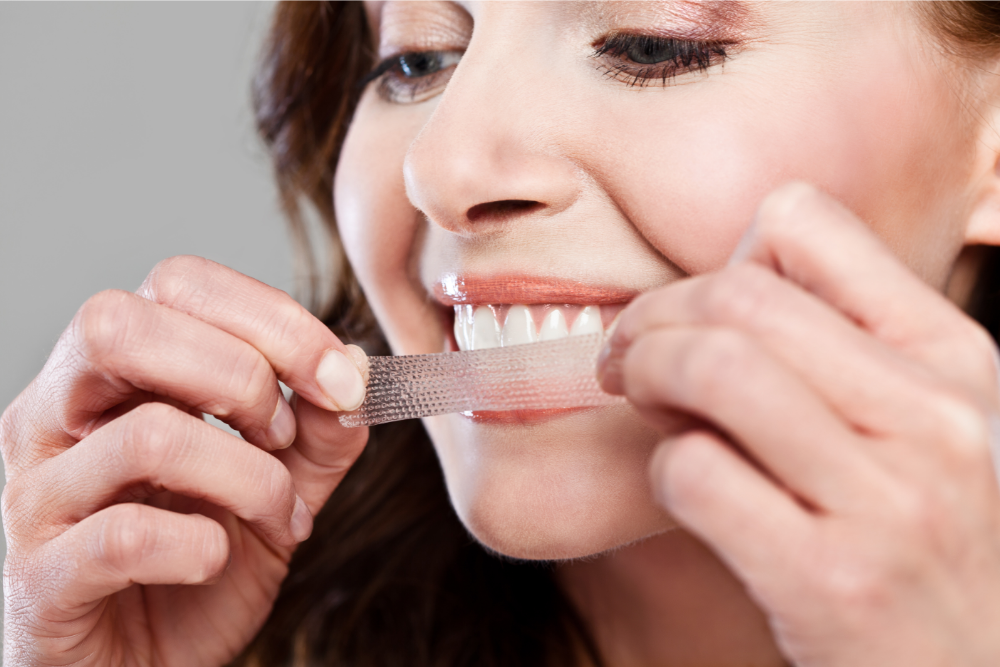 Try whitening strips if you are looking for a convenient way to whiten teeth that is more effective than using whitening toothpaste. You can buy whitening strips over the counter and whiten teeth at home which makes them convenient, and they are designed to remove deeper stains which makes them more effective than whitening toothpastes, however, it is important to note that these products contain lower concentrations of whitening ingredients than products used by dentists which makes them less effective.
Try whitening strips if you are looking for a convenient way to whiten teeth that is more effective than using whitening toothpaste. You can buy whitening strips over the counter and whiten teeth at home which makes them convenient, and they are designed to remove deeper stains which makes them more effective than whitening toothpastes, however, it is important to note that these products contain lower concentrations of whitening ingredients than products used by dentists which makes them less effective.
Although convenient, whitening strips can be a hassle when using them at home. They can overflow if there is too much gel in the tray and create a mess. It can be hard to keep the trays in place and the gel can cause irritation to the gums. Usually, it’s a two-week process of putting the strips on twice a day for up to thirty minutes, which makes them a bit time consuming. If used correctly, you can expect your teeth to be 2 to 3 shades lighter which can last for about 4 months.
Teeth Whitening with Bleaching
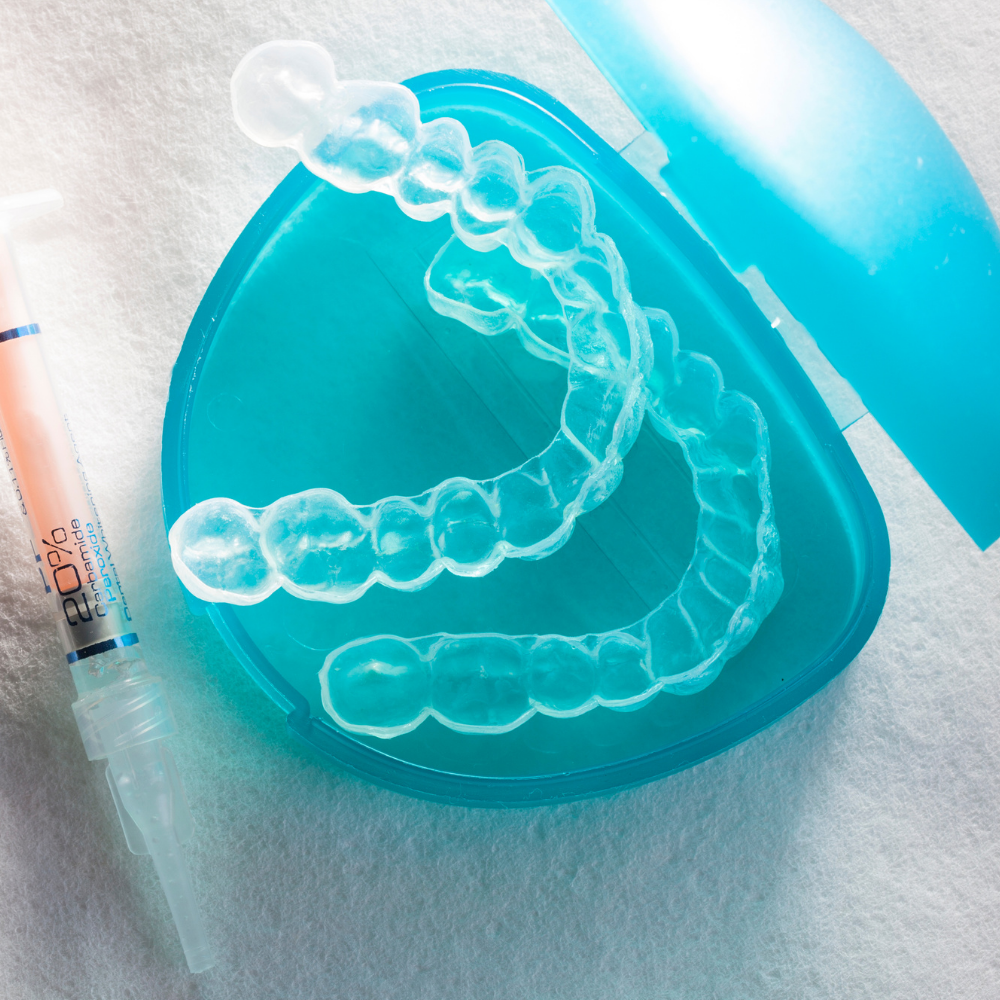 All over the counter and professional teeth whitening products, such as whitening mouthwash or rinse, whitening trays, strips or pastes contain a bleaching agent such as Carbamide or Hydrogen Peroxide in some concentration. Most teeth whitening products contain a 2% concentration of Hydrogen Peroxide.
All over the counter and professional teeth whitening products, such as whitening mouthwash or rinse, whitening trays, strips or pastes contain a bleaching agent such as Carbamide or Hydrogen Peroxide in some concentration. Most teeth whitening products contain a 2% concentration of Hydrogen Peroxide.
At the Dentist, you will find teeth whitening products with a slightly higher concentration of Carbamide or Hydrogen peroxide than the ones found over the counter. A professional teeth whitening with proper tools and time management will produce significant and lasting results.
Teeth Whitening at the Dentist
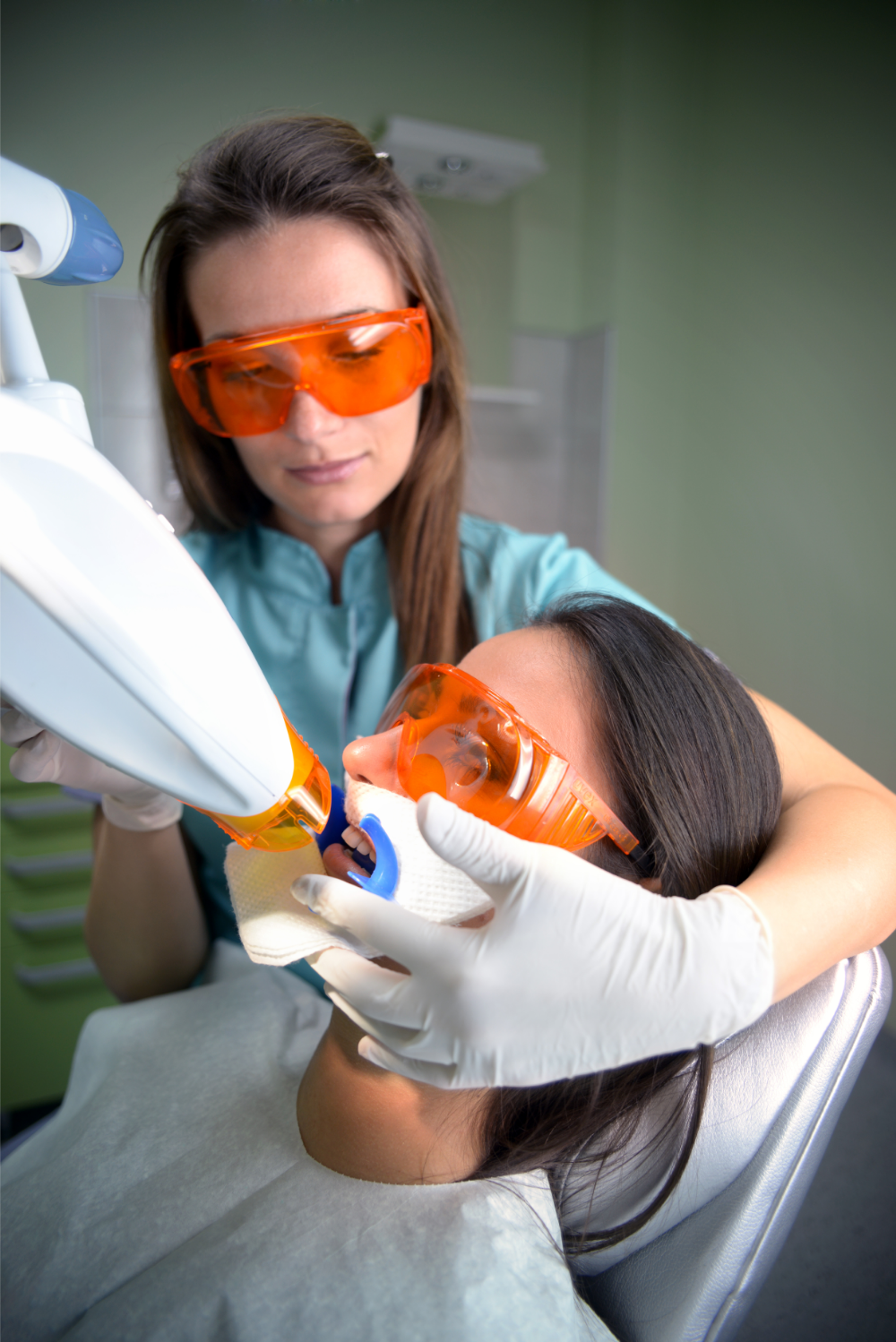 If you are unsure of which teeth whitening methods are safe, having a brand or seal of approval from a reputable dental organization like the American Dental Association Seal of Acceptance, will indicate the toothpaste has been tested for safety and effectiveness against stain removal by an independent review board of scientific experts. Discussing your options with a dentist will ensure you’re making the best teeth whitening option for yourself.
If you are unsure of which teeth whitening methods are safe, having a brand or seal of approval from a reputable dental organization like the American Dental Association Seal of Acceptance, will indicate the toothpaste has been tested for safety and effectiveness against stain removal by an independent review board of scientific experts. Discussing your options with a dentist will ensure you’re making the best teeth whitening option for yourself.
Your dentist will first assess the current shade of your teeth. They will use a shade palette to determine how light you want your teeth to look. Then they will use a pumice tool to scrub any remaining plaque. To protect your gums and the inside of your cheeks from the corrosive effects of the bleaching agent, they will cover the gum line and use a tool to keep your mouth open, so you don’t accidentally touch or swallow the gel. After the session, you and your dentist will discuss whether you have achieved the desired shade. If not, you will be scheduled for more sessions.
Can I Whiten Teeth at Access Dental?
Whitening products maybe convenient and sometimes cheap but they are not effective against tougher stains or if you want to see a significant difference in the shade of your teeth. At Access Dental, you and your dentist can decide which method of teeth whitening is the safest and most effective for you. Book your appointment with Access Dental where a knowledgeable professional will make sure you walk out with a smile you love.

